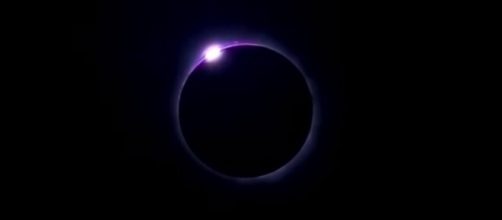America will soon witness their first solar eclipse for 99 years on August 21, 2017. Spectators around the world can gather at the best viewing sites from Oregon to South Carolina. Here are the details and tips on how to get the best sight of it.
'Great Solar Eclipse' coming soon
The United States of America had their last Total Solar Eclipse in 1918. Since then, they have never witnessed the same phenomenon again. According to NASA, America will finally be able to witness it again since the last time on August 21, 2017.
On this most-awaited day, darkness will slowly deepen as the moon completely blocks the sun.
Just before it happens, the temperature will drop then the sunlight dramatically fades until everything is in absolute darkness. On the upcoming event, observers may also see the diamond ring effect caused when the sun’s light peek through the moon’s valleys.
America’s upcoming occasion is tagged as the “Great Solar Eclipse.” Hence, it is the biggest and best eclipse that will be recorded in American history. However, its totality may only be witnessed by people on the centerline for only 2 minutes to 2 minutes and 41 seconds.
Best viewing site revealed
The “Great Solar Eclipse” is a coast-to-coast phenomenon. It will begin on Oregon’s coast and across Idaho, Wyoming, Nebraska, Kansas, Missouri, Illinois, and Kentucky.
It will also cross through Tennessee, Georgia, North Carolina, South Carolina, and head back to the sea. Its path also includes large cities such as Nashville, Greenville, Columbia, and Charleston. The upcoming eclipse will also be visible in other places outside the path.
Though the places cited above are on the path, it may be cloudy and not give the best sight of the eclipse. The best viewing site includes Oregon, Idaho, Wyoming, and Nebraska wherein there is a greater chance of clear skies. Eclipse chasers and the observers can head off to the west part of Idaho then to the Yellowstone and Jackson Hole Valley at the Grand Tetons National Park. They can also head off to Riverton, Wyoming, to witness the phenomenal event.
There may also be traffic congestion during the day as observers travel to their chosen destinations. With this, Michael Zeiler, who has witnessed eight total solar eclipses, recommends other spectators to head off to the Snake River Valley in Eastern Idaho, Riverton, and Casper Wyoming, and any place at Nebraska.
When is the next total solar eclipse?
The next U.S. total solar eclipse will happen on April 8, 2024, which is seven years from now. Its path includes big cities such as Austin, Dallas, Indianapolis, Cleveland, Buffalo, and Montreal. Hence, it will be visible from Texas to New England, USA Today reports. There will also be another one in 2044, 2045 and 2078. This occasion rarely happens, so people should not miss this historical day.


